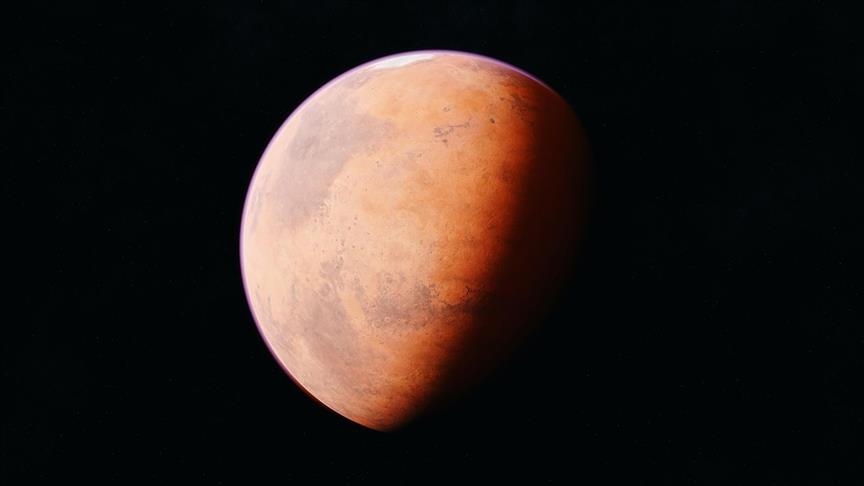Mars once had oceans, ‘vacation-style’ beaches, study suggests
‘We found evidence for wind, waves, no shortage of sand -- a proper vacation-style beach,’ researcher says

ISTANBUL
Subsurface data from Mars suggests the planet may have once featured oceans and beaches similar to Earth’s, according to a new study published in Proceedings of the National Academy of Sciences.
An international team of scientists including researchers from Penn State University in the US and Guangzhou University in China uncovered hidden rock layers beneath Mars' surface using data from the Zhurong rover, providing strong evidence of an ancient northern ocean.
“We’re finding places on Mars that used to look like ancient beaches and ancient river deltas. We found evidence for wind, waves, no shortage of sand -- a proper vacation-style beach,” said Benjamin Cardenas, assistant professor of geology at Penn State and a co-author of the study.
When the team examined radar data, they discovered layered structures resembling Earth's beaches, known as "foreshore deposits," which form when tides and waves carry sediments into large bodies of water.
"This immediately caught our attention, as it suggests the presence of waves, indicating a dynamic interaction between air and water," said Cardenas.
Cardenas noted that comparing Martian radar data with Earth's coastal deposits revealed striking similarities, with the dip angles on Mars matching those found in coastal sediments on Earth.
He added that the discovery suggests Mars was once far wetter, supporting the theory of a vast ocean in the planet’s northern hemisphere.
The study also provides fresh insights into Mars' environmental history, indicating a long period of warm and wet conditions that could have lasted millions of years and potentially supported life.


